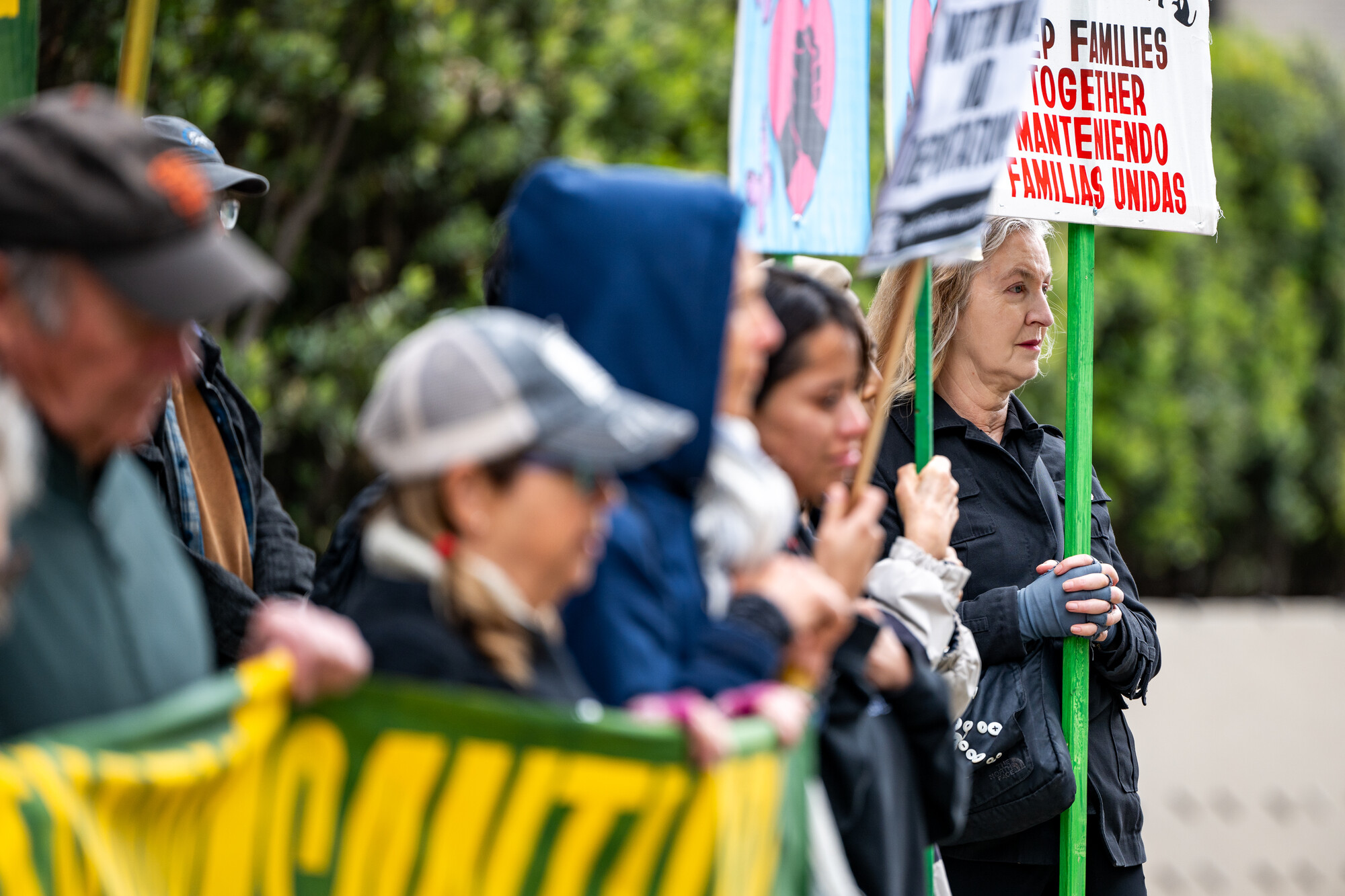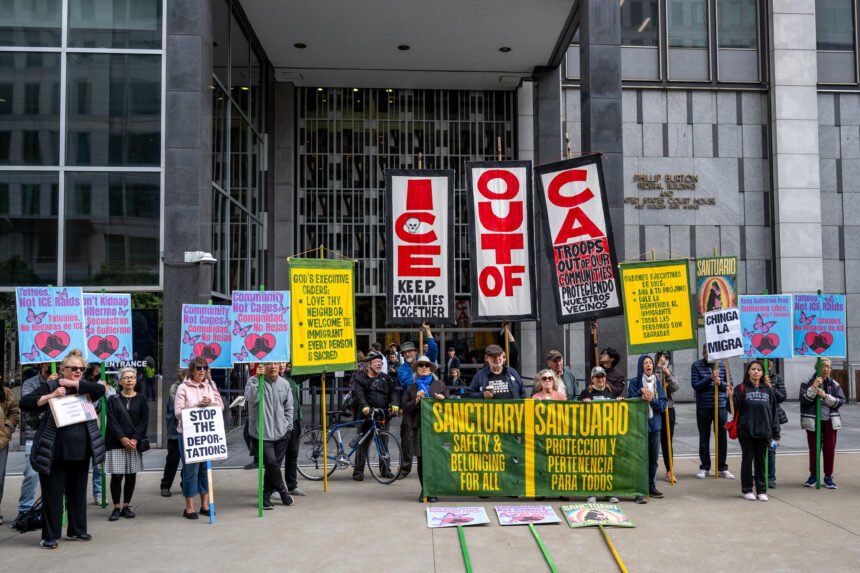In response, community groups have ramped up efforts to accompany immigrants to court hearings and scheduled check-ins with ICE, offering both logistical and emotional support.
One of those groups is NorCal Resist, a nonprofit that organizes a rapid response network, bail funds and legal aid workshops. Its accompaniment program has existed for years, helping refugees and asylum seekers settle into their new lives in the U.S., but “this need has grown so much now that we have ICE stalking people at immigration courts,” said Autumn Gonzalez, a volunteer with NorCal Resist.
The increase in ICE activity at courthouses — and the protests it has sparked — has turned these buildings into tense, volatile spaces, as recent videos showing ICE officers driving through protesters outside a San Francisco courthouse show.
“If someone is detained by ICE, we immediately contact their family, let them know what’s going on and get them plugged in with legal resources,” Gonzalez said. “So that we can hopefully help get their loved one out — or at least help them fight their case from inside of detention.”
She added: “What we want to make sure never happens is that ICE detains someone, this person disappears and no one knows what happened to them or where they went.”
Getting involved
Allies doing this work should acknowledge the risk they themselves may face, Gonzalez said. “We’re in the courts every day watching ICE, and they threaten to arrest our volunteers,” she said. Still, she added, these individuals “have made peace with that possibility, and they know that the organization will support them if it does happen.”
You don’t even need a large organization like NorCal Resist to form an accompaniment group in your community, Gonzalez said.
“Start small and think about: ‘Who are the impacted people I know?’ Maybe you have impacted people in your own family,” she said. “Tap into those networks that we already have in our lives and make sure that nobody is going to any of these appointments alone.”
Read more about the work advocates are doing in California immigration court.

Creating — and using — new online tools: Apps like ICEBlock
After the 2024 election, Austin, Texas-based programmer Joshua Aaron started thinking about what he could personally do to protect communities he believed the incoming Trump administration would target.
On April 2, Aaron launched ICEBlock, a free crowd-sourced app to report ICE sightings in public. The app allows users to report and geo-tag apparent sightings of ICE agents on a map, sending notifications to all other ICEBlock users within a 5-mile radius.
“When we are subverting the Constitution, taking away habeas corpus or the rights of due process of our immigrant friends and neighbors, that cannot stand,” Aaron said. He added that recent events remind him of the stories he’d hear growing up from older Jewish relatives and friends about the Gestapo’s activities in Nazi Germany.







